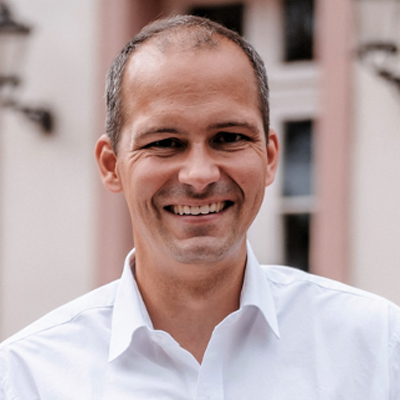Nico Grove is managing director and co-founder of kawikani, an M&A and investment boutique for digital infrastructure: www.kawikani.eu. Nico is also co-founder of Di4 – community for the promotion of digital infrastructure, investment, innovation, and industry. Di4 enables match-making between investors, service providers, asset owners, and other stakeholders by focusing on concrete transactions: www.diiii.net.
Nico holds a Ph.D. with summa cum laude from Ludwig-Maximilians-Universität München, a Master of Business Administration (Dipl.-Kfm.), and a Master of Business @Research (MBR) from the Munich School of Management, LMU, as well as a Master of Economics (MEc) from Macquarie University in Sydney.
How can telecommunications technologies help humanity?
Telecommunications and communication infrastructure are the fundamentals of connecting people and communities with society. Today, digital business and digitalization are fundamental to economic value creation. Recent times have shown us how important digital infrastructure and related services and applications are in order to keep the world up and running. This is why kawikani engages in digital infrastructure provision and financing: we are passionate about digital infrastructure.
If one thing should be redeveloped within the telecom and related industries, what should it be?
Telecommunication infrastructure was implemented by the state and by politicians by a general “demand drives supply” market approach. However, digital infrastructure, including communication networks is following Gilder’s Law: supply drives demand.
In particular, I am referring to market hindering concepts, which were driven by market participants and politicians: competition between fixed and mobile networks, fiber versus twisted pair (DSL), or the current debate about the sizing of data centers, i.e., hyperscalers versus edge. All of these technologies and concepts should not have been seen as rivaling elements. They are all complementary and contribute towards digitization and digital business and society.
What network-related development will have the greatest impact in our industry?
Ubiquitous connectivity, as I would call it, enables entire new businesses, services, and contributes to making life for all of us more and more easy. In particular, examples are intelligent networks and related services in the areas of health, education, energy, resources, or transportation, just to name a few. However, this comes at a price – we have to find rules and mechanisms at the same time for data usage in order to make the best out of this and limit the downsides.
What value does PTC hold for you/your company?
PTC is a unique and valuable community when it comes to digital infrastructure operators, developers, vendors, and service and application providers. However, the most important value is the “aloha spirit” every PTC Member and participant shares.
What would you share with those interested in becoming a PTC Member?
If you are in digital infrastructure, services, or applications, PTC is the place to be for connecting the dots internationally. Join us in Waikiki at PTC’22: Reunite. Rethink. Renew. and become part of the PTC Community’s “aloha spirit.”. A warm welcome is guaranteed, and you connect personally to distinguished market experts and leaders.
What advice would you share with current and future graduates interested in this field?
You might think that digital infrastructure construction is finished at a certain stage, the field narrows and related work becomes obsolete or boring. But the opposite is true: digitalization is not a task; it is a recurring process. And this requires highly skilled, creative, and passionate graduates in all areas.
What is something that not that many people know about you?
In 1999, we created with TV1.DE the first Internet TV broadcaster in Europe, before the first Internet bubble burst. However, since that time, I know from my own experience that Gilder’s Law is valid, and that every digital infrastructure created will be used to their capacity constraints.
What has been a positive outcome organizationally or individually given the current state of the world?
The current crisis placed a hard burden on many people. Digital infrastructure, however, has undergone a massive acceleration. Let’s make use of this opportunity in order to create positive spillover effects from digital infrastructure for the benefit of society.
About kawikani
kawikani is a digital infrastructure M&A boutique, providing investors with classical buy-and-build cases, strategy support in products, markets, operations, and technology, as well as commercial and technical due diligence for operators, investors, and banks.









